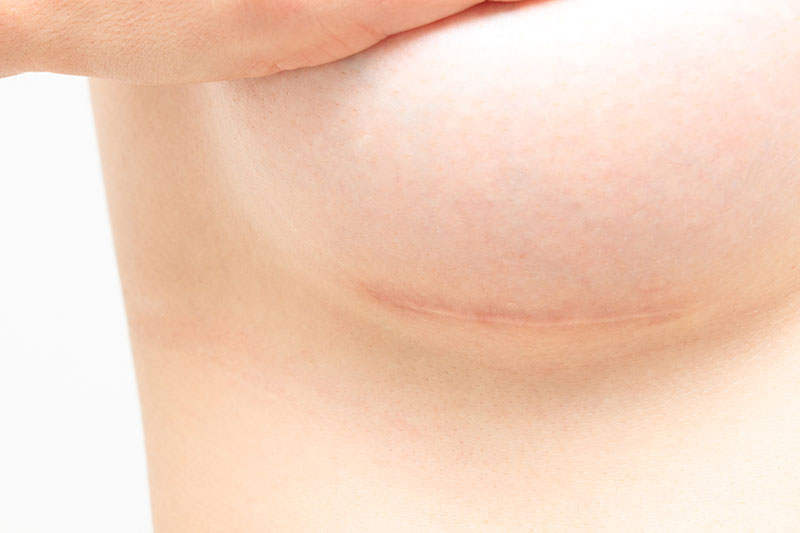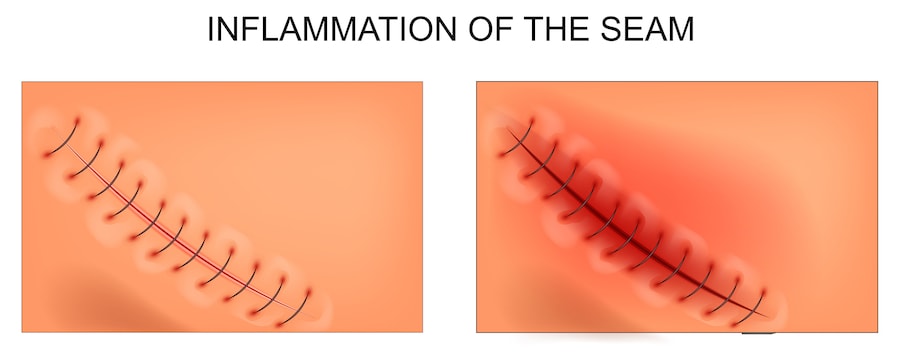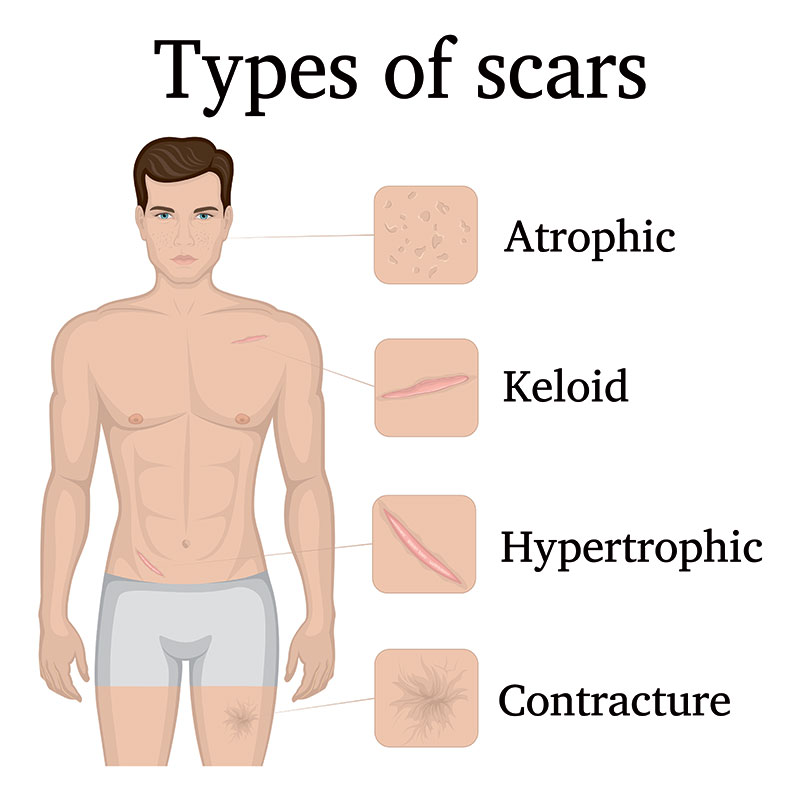3 Ways to Know the Difference Between Healing and Infected Surgical Wounds
Posted July 27, 2020 in Plastic Surgery Scars
3 Minute Read:
Post-surgical scarring is one of the most pressing concerns many potential plastic surgery patients have before undergoing their chosen procedure. This hesitation is understandable.
People choose plastic surgery to improve their appearances. This is common with facial enhancement surgeries, such as facelift surgery or brow lift surgery, or body contouring procedures like tummy tuck surgery, skin removal after massive weight loss, or liposuction surgery. And, unfortunately, a scar is anything but aesthetically appealing.

So, what can be done about these unwanted marks?
Sadly, the answer is not much. Plastic surgeons do everything they can to place incisions in discreet areas of the body, and, as plastic surgeons are skilled in closing and suturing techniques, most plastic surgery scars heal well.
Unfortunately, any incision made will result in a scar, and, sadly, some patients are more prone to scarring than others.
While plastic surgery scars will fade with time, they still require diligent care and observation, as poor scarring is usually a result of the scar healing improperly.
Why Do Surgical Scars Form?
As healing occurs following your plastic surgery, there are distinct changes that occur to the skin (on and near the wound). The healing process varies depending on the type and extent of the procedure. For instance, in a tummy tuck procedure, a mini tuck will require less recovery time than an extended tummy tuck.
For proper healing to take place, always follow Dr. Grazer’s instructions and pay attention to your plastic surgery incisions to ensure your wounds are healing as they should.

It is essential to understand what to expect during the recovery process and be aware of where you are in the healing process to help make your experience easier and safer.
What Are the Signs That Your Wound Is Healing Properly?
Thanks to our immune system, our bodies have an incredible ability to heal themselves. Wound repair occurs in distinct phases, including bleeding and clotting, followed by the formation of a scab.
While you may experience swelling, inflammation, pain, and clear discharge after your cosmetic procedure, you need not worry unless it is extreme. As your wound heals, new scar tissue starts to grow over the wound, after which you can resume your daily activities.
You may find yourself wondering if what you are experiencing is normal or if something is amiss. Here are some warning signs to watch out for.
1. Fluid
As your wound heals, you will notice some watery discharge coming out of the incision area. This is perfectly normal and will usually occur for the first two to three days following the procedure.
If you have greenish, yellowish, or cloudy drainage seeping from the surgical site, your healing incisions might be infected, and you will need to contact your surgeon as soon as possible.
2. Redness
Some degree of redness and pain is typical following your surgical procedure. However, extreme redness that spreads as thready, spiderweb patterns beyond the wound could indicate a possible infection. Contact your surgeon to help you avoid further complications.
 3. Raised Skin
3. Raised Skin
Ideally, healing wounds should remain relatively flat. If it is not, that might be a sign that something is not healing appropriately.
A case in point may be a breast implant incision that stays red and swollen for sеvеrаl weeks post-operation.
An infected wound will have enlarged and hardened lymph nodes, especially close to the surgery site.
As a matter of precaution, it’s important to contact your surgeon to have him/her examine your surgical site and test the fluid around your implant for signs of bacteria.
Unfortunately, some wounds become hypertrophic scars or turn into keloid scars, which are raised and thick lesions that develop at the site of an injury (such as a surgical wound). These scars are sometimes inevitable; however, they may be avoided with adequate scar care during the healing process.
Interested in Learning More About Plastic Surgery in Newport Beach?
Knowing when you have an infected wound and seeking immediate help is crucial in minimizing scarring and avoiding further complications.
To learn more, call 949-644-1240 to schedule a consultation with Dr. Jon Grazer. Dr. Grazer is a board-certified plastic surgeon in Newport Beach, California, and serves the greater Orange County area. He has performed numerous procedures to help our patients achieve their aesthetic goals.